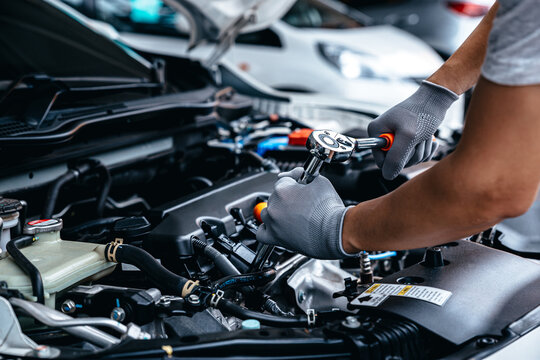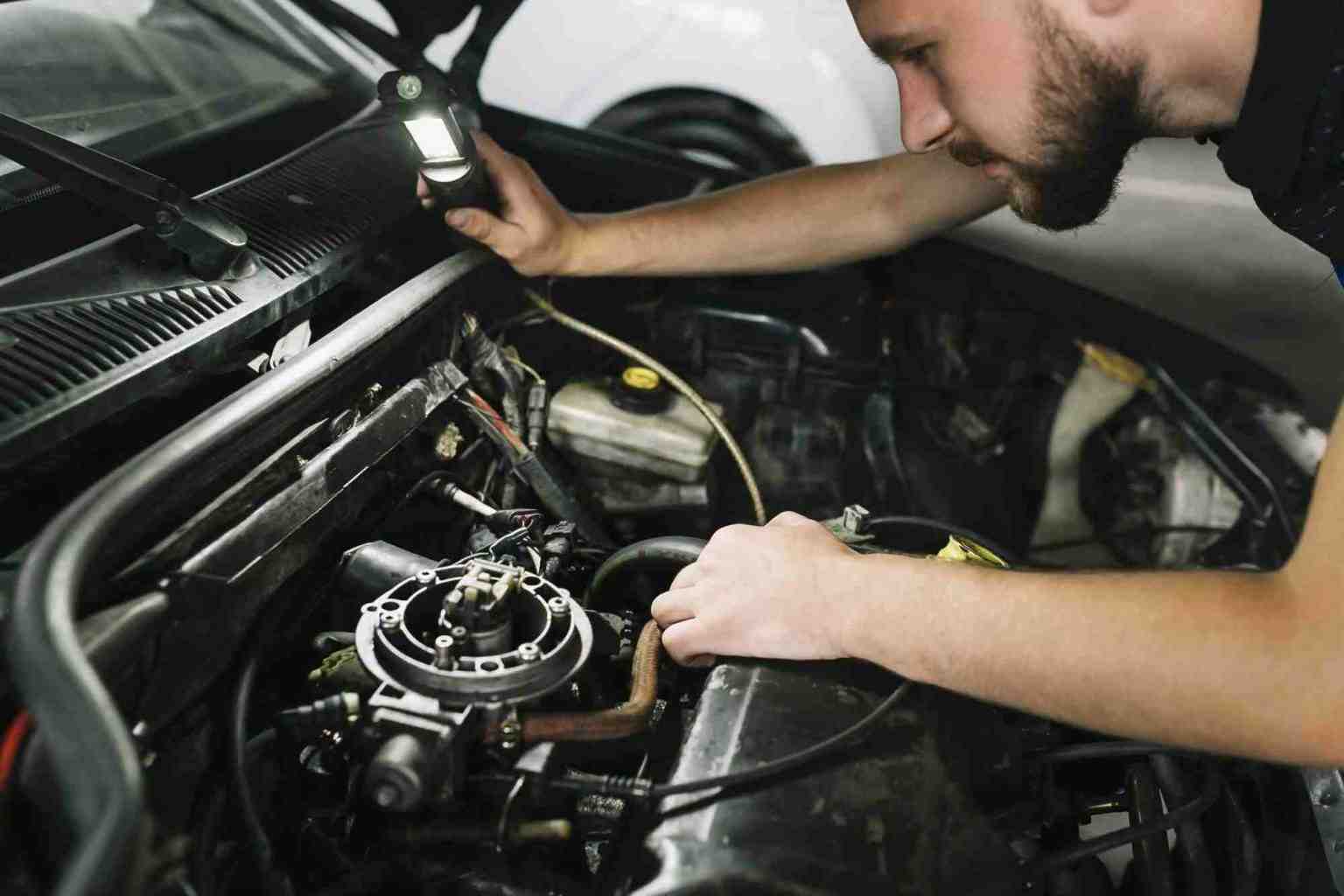What to Expect During a Comprehensive Car Service Consultation
What to Expect During a Comprehensive Car Service Consultation
Blog Article
Discover the Many Typical Automobile Fixing Issues Drivers Face Today
From the subtle decline in engine performance to the unnerving screech of brakes, these issues commonly occur from widespread yet important parts. The details of modern lorries even more complicates issues, with electronic systems and transmission devices regularly offering their very own set of challenges.
Engine Efficiency Troubles
Engine performance issues are a constant difficulty faced by lots of car owners, commonly manifesting with symptoms such as lowered power, rough idling, or bad fuel economic situation. These issues can arise from different elements within the engine system, consisting of the ignition, gas delivery, and air consumption systems. A typical culprit is the failing of ignition system, which, when worn, can result in insufficient combustion, leading to power loss and increased gas intake.
One more prevalent cause is a malfunctioning fuel injector that interrupts the exact distribution of gas into the engine's burning chamber. This imbalance can trigger the engine to misfire, be reluctant during velocity, or perhaps delay. Obstructed air filters likewise contribute substantially to inadequate engine efficiency by limiting the air movement necessary for optimum burning, thus reducing power result and decreasing fuel performance.
Furthermore, a defective oxygen sensing unit can misinterpret the air-fuel blend, triggering the engine control device (ECU) to adjust it poorly, more affecting efficiency. Car Service. Normal upkeep, including prompt replacement of these parts and adherence to service timetables, is necessary in dealing with and stopping engine performance concerns. Specialist diagnostics can properly recognize the origin, making certain exact and efficient repairs
Brake System Malfunctions
Brake system breakdowns are a critical concern for lorry safety, commonly showing up via symptoms such as screeching noises, minimized braking responsiveness, or a spongy brake pedal. These problems can come from different parts within the brake system, consisting of the brake pads, blades, calipers, or hydraulic lines. Used brake pads are a common offender, as they diminish the system's capability to generate adequate rubbing, resulting in longer stopping ranges. Deformed rotors can trigger vibrations and minimize braking efficiency.

Caliper breakdowns, such as seizing, can likewise hinder braking efficiency. This can cause unequal brake pad wear and drawing away throughout stopping. Addressing these malfunctions quickly is vital, as overlooking brake system issues can rise into severe safety and security risks. Timely fixings and specialist examinations are crucial to making certain the integrity and safety of the brake system.
Transmission Troubles
An automobile's transmission system is important to its total performance, as it guarantees the efficient transfer of power from the engine to the wheels. A malfunctioning transmission can lead to significant driving issues, including irregular moving, sliding gears, and even full vehicle immobilization. Transmission troubles are typically a resource of irritation for chauffeurs due to their intricacy and the possible expenses connected with their repair.

Normal upkeep is crucial in preventing transmission problems. This includes checking and replacing transmission liquid according to the manufacturer's referrals, in addition to resolving any caution signs such as unusual noises or delayed equipment interaction immediately. Ignoring these symptoms can intensify the problem, leading to extra comprehensive damage and costly repair services. Professional analysis assessments and timely treatment are necessary to make sure the durability and dependability of a car's transmission system.
Electric System Failures
While transmission issues usually dominate discussions around lorry performance, the electric system is equally crucial to a vehicle's capability. Modern automobiles depend greatly on their electric systems, which regulate everything from the ignition procedure to sophisticated infotainment and safety and security attributes. Electric system failings can show up in various ways, such as dead batteries, damaged alternators, blown fuses, and malfunctioning starter electric motors. These problems can leave drivers stranded and interrupt the car's operability, making prompt medical diagnosis and repair service vital.
A typical electrical trouble is a drained battery, often triggered by leaving lights on or a failing generator not charging the battery correctly. The generator, in charge of providing power while the engine runs, can likewise fail, leading to a power deficiency - Car Service. Furthermore, blown merges are normal, typically indicating a short circuit or an overload in the system. Starter electric motor problems can avoid the engine from handing over, commonly needing replacement or repair service.
Identifying electrical failures demands an organized approach, utilizing specialized devices like company website multimeters to trace faults. Regular upkeep, including checking battery wellness and making certain tight electrical links, can avoid lots of concerns. Remaining vigilant to cautioning indications can minimize possible failures, making sure dependable vehicle performance.
Suspension and Guiding Issues
Suspension and steering systems are critical parts that guarantee a lorry's security and handling. These systems function in tandem to give a smooth ride, preserve tire contact with the roadway, and help with accurate control of the lorry. Over time, they are at risk to use and tear, leading to common problems that can jeopardize safety and efficiency.
One prevalent trouble in the shock absorber is damaged shock absorbers or struts, which can create extreme bouncing, unequal tire wear, and lessened braking effectiveness. In addition, bushings and round joints might weaken, bring about clunking noises and inadequate positioning. Attending to these problems immediately is vital to prevent more damage and guarantee ideal driving conditions.
On the steering side, concerns frequently arise from used steering racks, connection poles, or power guiding pumps. Signs and symptoms such as problem steering, vibrations, or a click loose steering wheel can show underlying problems. Regular maintenance checks can assist recognize these concerns early, making certain and avoiding costly repairs vehicle driver safety and security.
Conclusion
Finally, the prevalence of engine performance problems, brake system malfunctions, transmission troubles, electric system failings, and suspension or guiding issues underscores the crucial demand for normal lorry upkeep and diagnostics. These typical car repair tests not just influence automobile efficiency but also pose significant Extra resources safety risks. Resolving these issues quickly with regular inspections and prompt repair work can stop pricey damages and guarantee the long life and dependability of lorries, inevitably enhancing roadway security for all vehicle drivers.
These issues can arise from different components within the engine system, including the ignition, gas distribution, and air consumption systems.Brake system malfunctions are a critical worry for automobile safety and security, usually manifesting through signs such as screeching noises, lowered stopping responsiveness, or a spongy brake pedal. These problems can stem from different components within the brake system, consisting of the brake pads, rotors, calipers, or hydraulic lines.The brake fluid plays a pivotal role in keeping ideal brake efficiency by transferring force from the pedal to the brake components.In final thought, the occurrence of engine performance issues, brake system malfunctions, transmission problems, electrical system failures, and suspension or guiding problems highlights the vital demand for regular car upkeep and diagnostics.
Report this page